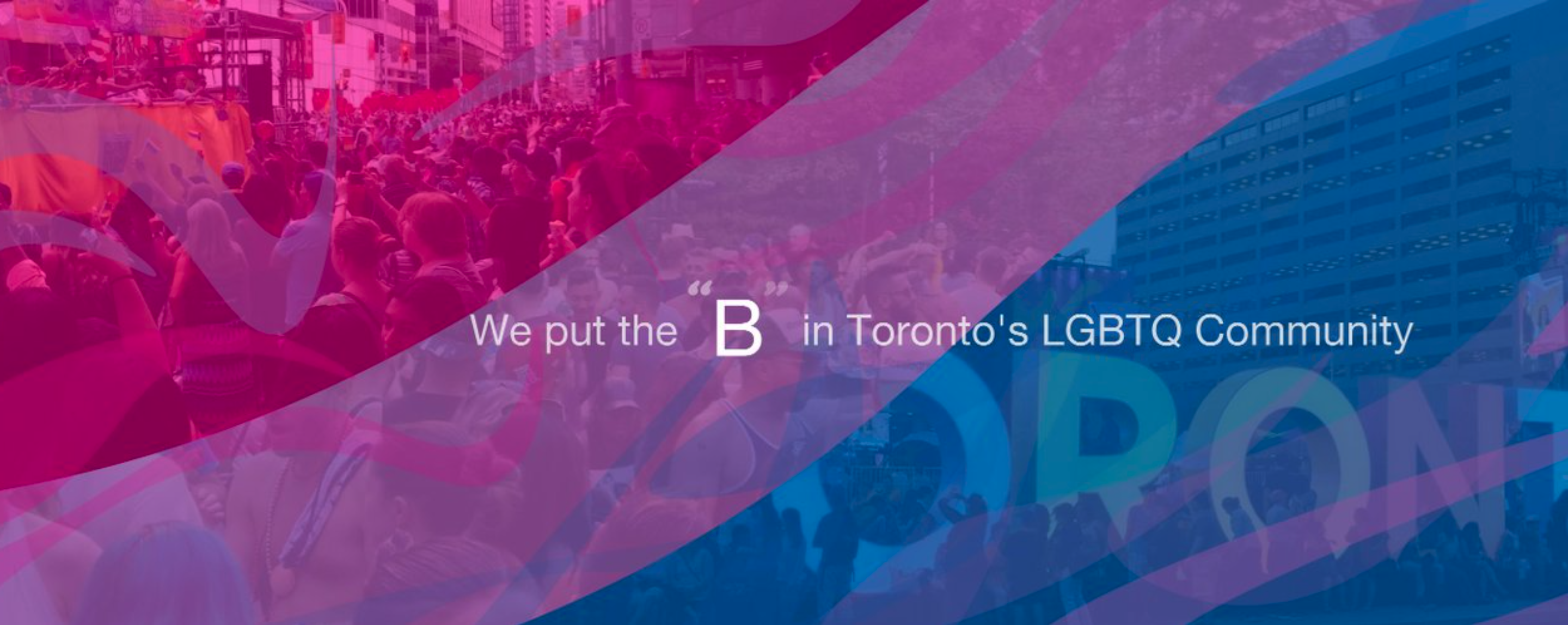From the Village: Toronto Bi+ Network’s Tara Schorr on Bi+ Visibility Day
September 22, 2023

Today is Bi+ Visibility Day, so we caught up with Tara Schorr from the Toronto Bi+ Network to talk about the organization, and the state of bisexuality.
The most common perception of the word ‘bisexual,’ describes a man or woman who is sexually attracted to both men and women, but as more people question the gender binary, and calls from marginalized groups refusing to be reduced to stereotypes get louder, where does that leave bisexuality?
Today, the mainstream community belief is that bisexuality is a spectrum — the bi+ umbrella encompasses identities like pansexual, polysexual, omnisexual, queer, fluid, biromantic, panromantic, and other m-spec (multisexual spectrum) sexual orientations, regardless of one’s own gender.
“The thing that’s new is the words we have to describe our orientations and identities, but people have been feeling these ways forever,” says Schorr, a member of the Toronto Bi+ Network’s planning group. “Some younger people weren’t there back in the day, and they have this idea that bi means two, so bisexuality is exclusionary or binary, but many of us think of bisexuality as a cultural touchstone. We were just using the words we had at the time, now it’s an identity.”
Schorr points to the Bisexual Manifesto, published in 1990 by the San Francisco publication Anything That Moves (a sarcastic reclamation of the stereotype that a bi person will sleep with anything that moves). 33 years later, the article has become an iconic document, and it paints a picture of bisexuality that’s far from your uncle’s definition.
“We bisexuals tend to define bisexuality in ways that are unique to our own individuality. There are as many definitions of bisexuality as there are bisexuals,” the pages of Anything That Moves read. “Do not assume that bisexuality is binary or duogomous in nature: that we have ‘two’ sides or that we MUST be involved simultaneously with both genders to be fulfilled human beings. In fact, don’t assume that there are only two genders.”
Schorr also says people of those various m-spec identities might simplify things depending on who they’re talking to. “If you’re talking to someone from outside the community, you might tell them you’re bisexual because it’s a well understood term,” she says. “But when talking to someone better versed in alternative sexuality, you could tell them you’re omnisexual or panromantic without having to do tons of explanation.”
That lack of understanding is a common complaint in the bi+ community, who face an abundance of harmful stereotypes in media, music, politics and more. “People will describe a bi person in a male-female relationship as being in a ‘straight relationship,’ but I am not a straight person so I cannot be in a straight relationship,” she says.
“There’s this idea that being able to pass as straight is a privilege. Is having my identity denied a privilege? There’s an assumption there that I want to hide, that lacking visibility is preferable, but I’m proud. I don’t want to hide from anyone.”
“Refugee claims are sometimes rejected because a bisexual person is seen as less in-need,” Schorr says, laying out defining issues. “If you’re in a place where being gay is criminalized, they’re not gonna see a difference. There are also big health disparities when sexual health resources are created either for gay people or straight people. Representation matters in health too.”
“For a while the term ‘bisexual’ was flagged by Google as not a ‘safe’ search term,” she adds. “You couldn’t get resources or information if you had safe search on because Google put it in an ‘adult’ category. We’re people, not an adult film.”
But support exists: The Toronto Bi+ Network is in its 34th year, with meetings online and at The 519, where iterations of the group have met for at least 30 years. “The online piece is really important too, because we have people who join us from the US, UK, all over the world because of how few resources there are specific to bisexual people,” says Schorr.
“September is a fantastic month to come check out the group. It’s so important for bi+ folks to see themselves reflected, to be in a space where they can be their whole beautiful self. Come to that brunch. Come to that event,” she says. “It’s so healing and nurturing, physically and mentally, to be yourself.”
Visit TorontoBiNet.org or email info@torontobinet.org for more information. Toronto Bi+ Network has their all-gender meetings at The 519 on the third Thursday of each month from 7pm to 8:30 pm.
Impact Stories
June 2025
One Among Us: a community for East-Asian and East-Asian Canadian trans and gender-diverse people
April 2025
Remembering Jake: The Volunteer Who Fostered Belonging
December 2024
Honouring Their Names, Honouring Their Stories
September 2024
Norie: Don't Hide Who You Are, Let's Be Proud!
Finding safe spaces for 2SLGBTQ+ youth at The 519’s Youth Action and Arts Space.
August 2024
Jaris Swidrovich: Lifting up unexpected perspectives on The 519 board
June 2024
Sush: Cooking with Salt, Pepper, and Love!
Volunteering with Abuelita Norma
May 2024
Jayan: Youth Activism Today and Tomorrow
From the Village: Connie Langille on the promise of The Village
November 2023
From the Village: Nik Redman reflects on Trans Fathers 2B
September 2023
From the Village: Toronto Bi+ Network's Tara Schorr on Bi+ Visibility Day
From the Village: Chanelle Gallant on the 23rd anniversary of the Pussy Palace raid.
July 2023
From The Village: Patrick Fahn, AIDS Memorial Architect
May 2023
December 2022
Mayumi: The More We Are Together, The Happier We’ll Be
Kirina: Transitioning Every Day, in Every Way
November 2022


